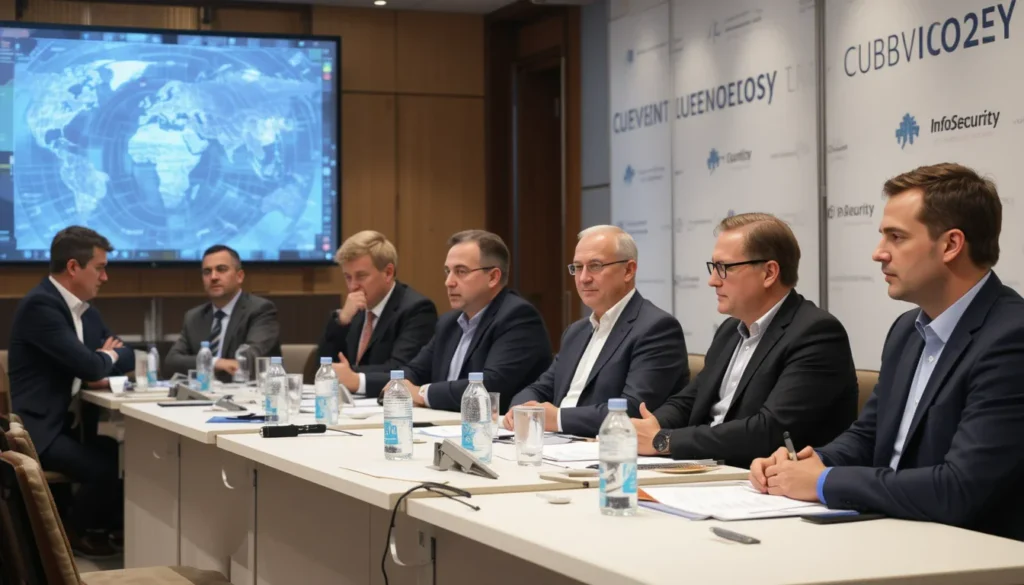Overview
Infosecurity Europe 2025, one of the world’s largest cybersecurity conferences, concluded with a sharp focus on the most pressing digital risks of our time—AI-driven threats, Zero Trust architecture, and the rapidly approaching post-quantum security era. Held in London, the event gathered industry leaders, researchers, and solution providers to shape the future of global cybersecurity.
Key Facts
- Event: Infosecurity Europe 2025
- Location: ExCeL London, UK
- Dates: June 3–5, 2025
- Focus Topics: AI threats, Zero Trust, post-quantum cryptography
- Notable Speakers: CISO of Google Cloud, CTO of IBM Security, UK’s National Cyber Security Centre (NCSC) Director
- New Launches: AI Risk Governance Frameworks, Post-Quantum Readiness Tools
- Attendance: 20,000+ global cybersecurity professionals
What’s Verified and What’s Still Unclear
✅ Verified:
- AI-based malware simulation tools were demonstrated live.
- Zero Trust is now being adopted at scale across financial and healthcare sectors.
- Major cloud providers are rolling out post-quantum key exchange protocols.
❓ Still Unclear:
- Will quantum-safe algorithms be mandated by the EU or only recommended?
- How governments will regulate AI misuse in cybersecurity remains undecided.
Timeline of Events
- March 2025: Agenda announced with AI threats taking center stage.
- May 2025: Keynote line-up revealed featuring cybersecurity luminaries.
- June 3, 2025: Opening day included a live simulation of an AI-generated phishing campaign.
- June 4, 2025: Multiple Zero Trust success stories were showcased.
- June 5, 2025: Closing address on global post-quantum readiness by IBM’s CTO.
Who’s Behind It?
Infosecurity Europe is organized by RX Global, a leading events company. The event is supported by major cybersecurity firms like Palo Alto Networks, CrowdStrike, Microsoft, IBM, and Symantec. The conference is also backed by UK’s NCSC and ENISA (European Union Agency for Cybersecurity).
Public & Industry Response
The response to Infosecurity Europe 2025 has been overwhelmingly positive. On social media, #InfoSecEurope trended for three days, and experts praised the practical demos and hands-on labs. Industry leaders agreed the shift toward AI resilience and quantum preparedness is both timely and critical.
Quotes from attendees:
- “This is not just another tech trend—AI threats are already here,” said one attendee from the banking sector.
- “Zero Trust is no longer optional. It’s the foundation for modern security,” emphasized a U.S. healthcare CISO.
What Makes This Event Unique?
Unlike previous editions, Infosecurity Europe 2025 moved beyond discussions to demonstrations—offering real-time simulations of AI-generated attacks and showcasing tangible tools for quantum resilience. For the first time, post-quantum tools were available for trial, marking a shift from theory to deployment.
Understanding the Basics
What is Infosecurity Europe?
It’s an annual cybersecurity event held in London, bringing together top experts, innovators, and businesses to explore cutting-edge topics, forge collaborations, and shape global cyber defense strategies.
What Are AI Threats?
AI threats include the malicious use of generative AI to automate phishing, evade detection, or enhance malware. These threats are fast evolving and hard to mitigate using traditional methods.
What Is Zero Trust?
Zero Trust is a security model that assumes no user or device is trusted by default, even inside a network. It uses strict identity verification and continuous monitoring to ensure safety.
What Is Post-Quantum Security?
As quantum computing develops, it threatens current encryption standards. Post-quantum cryptography refers to new cryptographic systems designed to be secure against quantum attacks.
What Happens Next?
Following the event, companies are expected to accelerate their Zero Trust adoption and begin evaluating post-quantum cryptographic solutions. Regulatory bodies in the EU and UK are likely to release updated guidance soon.
Next steps include:
- Vendors releasing AI-resilient threat detection systems.
- Enterprises setting 2026 as the deadline for post-quantum readiness.
- Upcoming AI misuse regulations from the EU and UK Parliament.
Summary
Infosecurity Europe 2025 delivered a clear message—AI is now a threat vector, Zero Trust is essential, and post-quantum security cannot wait. With record attendance and a future-facing agenda, this year’s conference set the tone for global cybersecurity in the next decade.
As digital threats evolve at breakneck speed, events like these remind us that adaptation and collaboration are our best defense.
